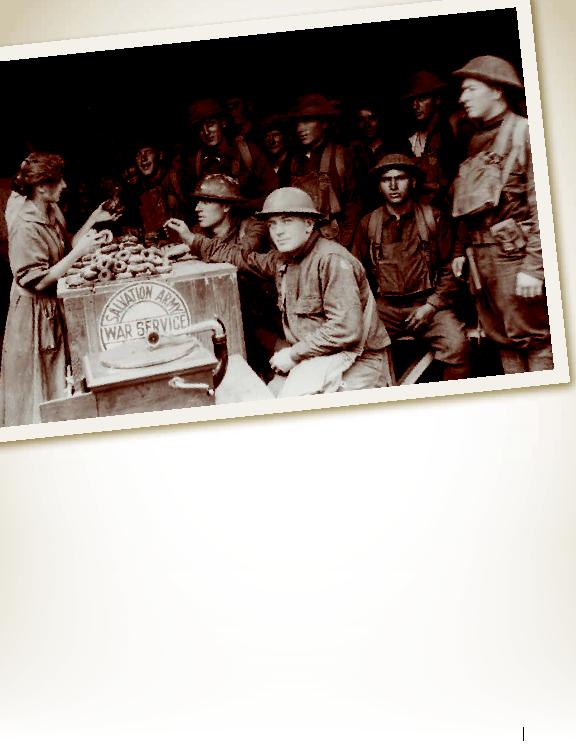
he was near at hand in Jersey City.
with men struggling with alcohol, the
lawyer was converted and became a
changed man. Not only did he regain his
reputation and much of his legal practice,
but he became a valued volunteer on
the staff of the attorney general in
Washington, DC.
States declared war on Germany and
the Central Powers, our government
accepted an offer of services from the
American Red Cross. Then the YMCA
made an offer of 10,000 volunteers.
Ten thousand! The Salvation Army's
National Commander Evangeline
Commander") foresaw a need for some
of her officers to serve overseas as well,
but with a different emphasis. She
wired her offer to Washington, but the
reply was, basically, "Thanks, but no
thanks." This response was not surpris-
ing, considering the YMCA's almost
overwhelming offer.
people were often perceived as a bunch
of religious eccentrics who persisted
in preaching on the streets, banging
drums and tambourines, playing horns
with varying degrees of tunefulness, and
accepting coins thrown onto a bass drum
laid on its side for that purpose.
to her offer. But she didn't accept that
as the last word. She sent her property
secretary, Lt. Colonel William Barker,
private secretary to the president.
SECRETARY
far end of the room when Colonel
Barker entered. After Barker stated
his case, they were interrupted by the
other man. "Joe, give the colonel what
he wants and make it good. The boys
over there will need help, and when I
think what Major Winchell has done
for me... " Colonel Barker then recog-
nized a prominent lawyer -- that law-
yer. His conversion through the Army's
ministry had caused a sensation in
New York society circles. So after tell-
ing his story to Tumulty, he said,
"Now you know what The Salvation
Army has done for me. Do what you
can for The Salvation Army."
Commander") foresaw a need for some
private secretary to the president.